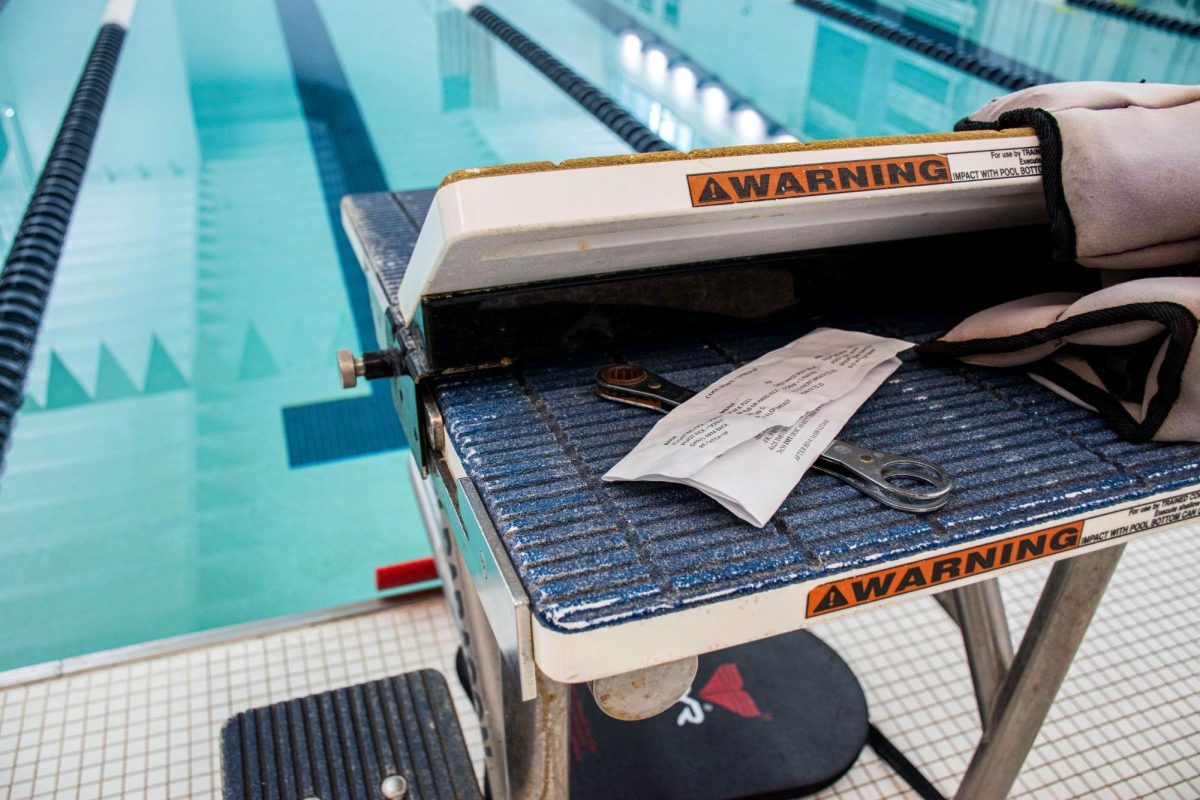Students in water sports said the planned removal of the Smith Center pool next fall will add difficulties to their practice and meeting logistics.
Officials plan to demolish the Smith Center pool — used by the club and varsity water polo and swimming and diving teams — around Labor Day to build a new basketball court and exercise facilities. Athletics Director Tanya Vogel said Wednesday at a local governing body meeting that the pool, eight lanes and 25 yards, which is below the Olympic size, is “insufficient” for the “high-quality, championship-level programs.”
She said GW has spoken with unnamed local offsite venues for the past year and are close to finalizing a contract with one less than 15 miles away from campus, though she did not specify whether club teams would fall under the contract.
“We have the terms agreed, in principle, with a local facility that has an Olympic-sized pool with deep water, which is very good news for all of those programs,” Vogel said.
The men’s and women’s swimming and diving teams won the Atlantic 10 Championship for the third-straight year in February.
Vogel also said they are working with Reston Limousine, which provides the Mount Vernon Campus Express shuttles, to offer additional transportation for athletes to and from the facility.
She said many teams at GW use off-campus facilities for their training, like the baseball team and gymnastics team. Vogel said the gymnastics team practices every day at a facility in Chantilly, Virginia, more than 20 miles away from campus, along with the tennis and track teams, which use facilities in Southeast D.C. and Georgetown, respectively.
“It’s very common to have teams going off campus,” Vogel said.
Senior Karol Mlynarczyk, who is on the men’s swimming and diving team, said it may be more difficult to schedule practices around classes with the added commute time to the new pool.
“We’re still figuring this out,” Mlynarczyk said. “Definitely it’s going to be harder, but how much harder, we don’t know.”
Mlynarczyk said there are about 50 people on the swimming and diving team, but the pool in Lerner Health and Wellness Center only has three lanes, making it too small to accommodate the team. He said the pool on the Mount Vernon Campus does not have diving boards, which makes it difficult to accommodate dive exercises.
“We don’t know what the future will bring, the next year or the next few weeks,” Mlynarczyk said.
Junior Logan Kalish, the coach of the club water polo team, said the Smith Center pool’s shallow end is somewhat uncommon, but he has not found it to be an issue.
“It’s really nice to have a pool on campus, especially one that’s capable of holding water polo things and swim things,” Kalish said.
He said needing to commute to a pool off campus would make it difficult to organize practices because athletes sometimes run late.
“You can’t really do that if we’re gonna be at an off-campus pool because we’ll have left already,” Kalish said.
First-year political science student Louise Kamaka, a member of the club swimming and water polo teams, said not having a home pool for games and meets will likely cost more money for the club teams because now they have to pay to travel to other schools’ swim meets more frequently.
She also said the Vern pool cannot be used year-round because as an outdoor pool, it gets cold in the winter and would be unsafe to practice in, even if it was heated.
“The Vern pool is not going to be a viable option for us,” Kamaka said.
Kamaka also said the pool in the Lerner Health and Wellness Center will not work for practices because it is not big enough to fit water polo nets on each side.
Luca Castorina, a senior on the varsity water polo team, said during the fall semester when the team is in season, they practice at a facility in Virginia.
“I’ve been used to practicing off campus since my freshman year, and it’s been four years that we have been going to this facility,” Castorina said.





